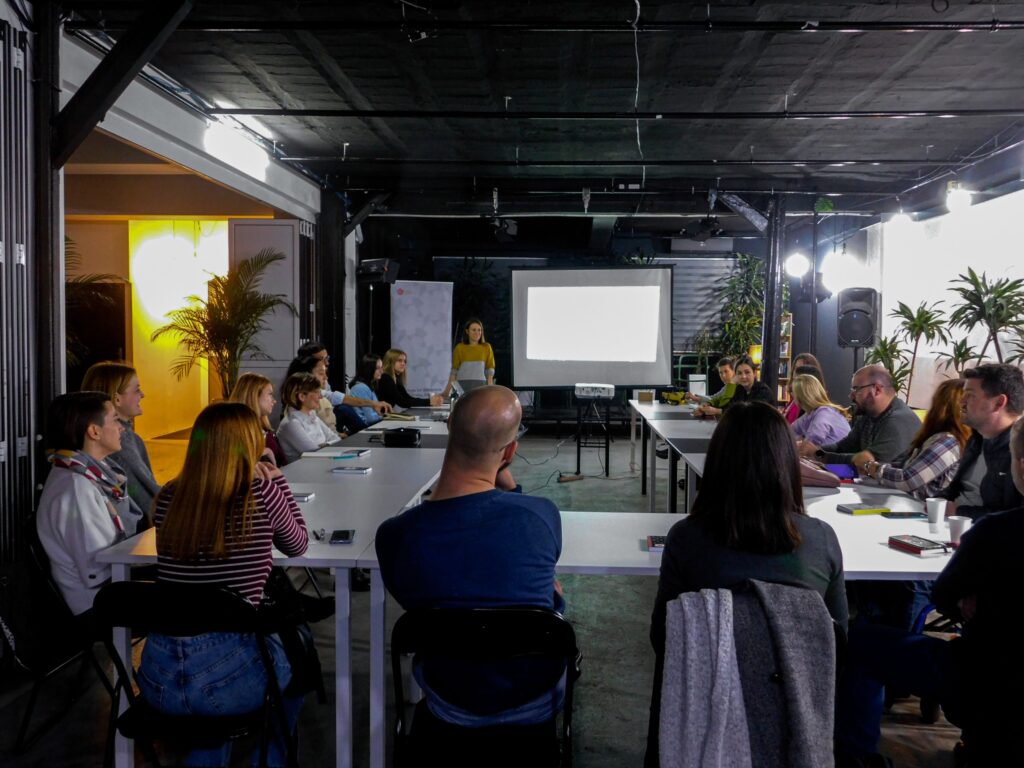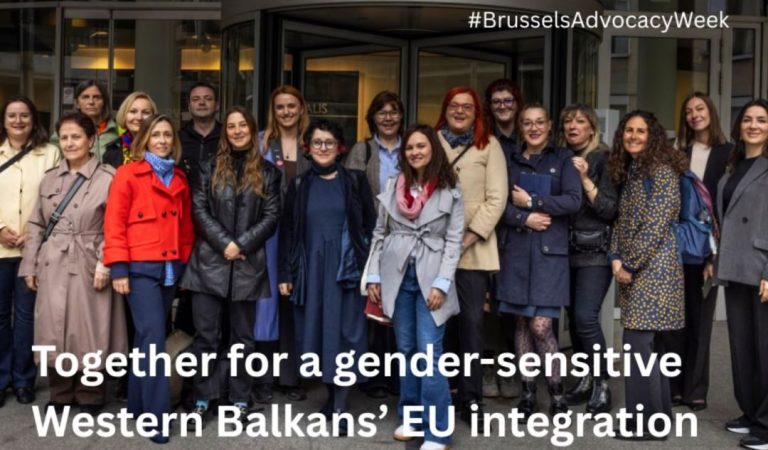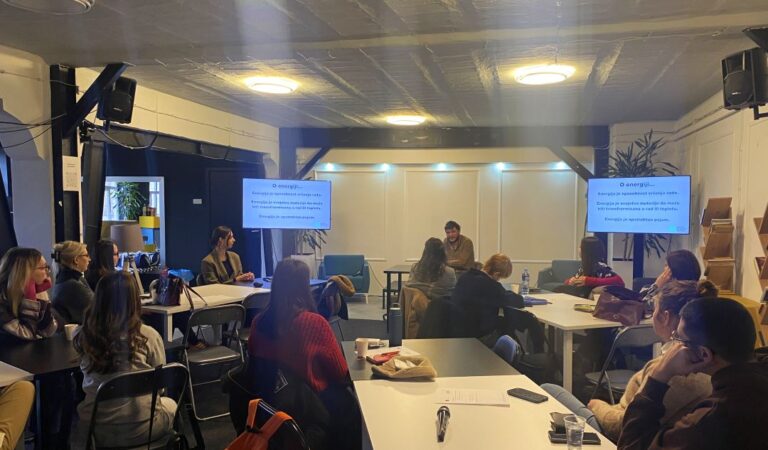This year we finally succeeded in organizing a part of the School of Economic and Social Rights live! In previous years, this was not possible due to the Covid pandemic.
We opened the School with a block of live lectures, giving us an opportunity to get to know each other better and have informal conversations between students and lecturers. As every year, we dedicated the introductory lectures to the definition of economic and social rights in the context of the human rights protection system.
After the introductory lectures, the participants had the opportunity to listen to the guest lecturer, Imogen Richmond Bishop, from the Amnesty International, who spoke about the (negative) impact of technology on economic and social rights, bringing up the topic of the Law on Social Card. Imogen also presented examples of automation of the Social Protection Systems in other countries and compared them with the law introduced in Serbia.
In the period from December to February, we organized online sessions. We talked about the right to work, social protection, housing, discriminatory practices, state obligations and the influence of international institutions. During the session on labor rights, we tackled the issue of difficulties of union associations in the context of general precarization of labor relations and one of the lecturers, Sandra Kasunić, from the Center for Peace Studies, said that the excellent discussion that took place during the session is a proof of how important is to shift from the theoretical discussion to the real life experience when talking about economic and social rights. This is something that the School of Economic and Social Rights has succeeded in for the third year in a row and that makes it unique in the field of human rights education.
The other lecturers also share the impression that talking about everyday experiences in an apprehensible way is one of the great advantages of the School, and this is one of our main goals: to provide adequate and comprehensive knowledge, but to make communication comprehensible even to those who are not legal professionals. Personal experiences and perceptions always open up space for discussion and debate on challenges from a different perspective, said Marina Simeunović, who was a lecturer this year, while her colleague, Jelena Kasunović added, “Perhaps the motivation for the participants to focus on their professional development can be the fact that first I participated in the School as a student, and then I got the opportunity to be a lecturer.” Our idea is to inspire the participants to continue their research and to extend the cooperation even after the School ends.
Listening to individual interests of the participants and following the discussions that took place during the School allowed us to design the third block of lectures, which also represented the end of the School. This block also took place live, which again allowed us to exchange experiences and opinions more informally in addition to attending standard lectures.
As before, lecturers and participants came not only from Serbia, but also from the region. Through the regional exchange of good and bad practices, we gain an insight into the extent to which we share problems in the sphere of economic and social rights and in which ways networking allows us to solve them faster.
Instead of writing a conclusion, we leave it to one of our participants to complete the story of the School: Organization, hospitality and cordiality have left the biggest impression on me. The organizers thought of every single detail and provided us with really useful material. The lectures were very interesting and interactive, and the lecturers tried to bring the seemingly abstract subject closer to us. In the end, what left the best impression on me was the international character of the School. In the past months, through the School program, I had the opportunity to discuss with colleagues from Serbia, Croatia and Bosnia and Herzegovina. In this way, I gained insight into systemic problems that are more or less the same in the countries in the region. The School and Belgrade will remain in my fond memories, and I look forward to future collaboration – Medina Bejtović.
Next fall, a new cycle of the School awaits us. Follow our website and social media and join the already traditional, regional program on human rights.



